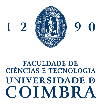Fees & scholarships
ERASMUS MUNDUS Scholarships
The scholarship holder students will pay no registration fees to the programme.
>> Download student agreement template for Scholarship Holder Students with all details
Here is the table of the remaining scholarships for the 2026 selection.
| Country | Remaining scholarships | Country | Remaining scholarships |
| Australia | 5 | Indonesia | 5 |
| Belgium | 5 | Ireland | 4 |
| Bolivia | 5 | Italy | 4 |
| Brazil | 5 | Mexico | 4 |
| Colombia | 5 | Nigeria | 4 |
| Costa Rica | 5 | Pakistan | 1 |
| Ecuador | 5 | Philippines | 3 |
| Ethiopia | 6 | Portugal | 5 |
| France | 3 | Russia | 5 |
| Georgia | 5 | Spain | 4 |
| Ghana | 5 | UK | 3 |
| Greece | 5 | USA | 5 |
| Italy | 5 | Vietnam | 5 |
| India | 1 |
For the students from the countries that are not listed in the table, the Erasmus programme still has 6 scholarships to offer.
Non-Scholarship Holder Students
>> Download student agreement template for Non-Scholarship Holder Students with all details
The ESA Academy Academic Scholarship programme aims to facilitate the access to space-related European academic programmes of tertiary education institutions by covering the tuition fees of selected students from ESA Member States, Associate Member States and Canada to complement their academic knowledge and better prepare them for a space-related career.
In this frame, the ESA Education Office has offered 3 scholarships to attend the 2024-2026 edition of the Erasmus Mundus Joint Master Degree in Planetary Geosciences - GeoPlaNet. GeoPlaNet-EMJM will again apply for ESA academy scholarships for the cohort 3 (2025-2027).
Extent of scholarship
The ESA Academy scholarship covers the yearly tuition fees of the academic programme, for its full duration, upon successful completion of the first year.
Eligibility
To be eligible for an ESA Academy Academic Scholarship, students must fulfil the following criteria at the start date of the academic programme:
- be minimum 18 years old at the time of the official start date of the academic programme;
- own a nationality of Austria, Belgium, Czechia, Denmark, Estonia, Finland, France, Germany, Greece, Hungary, Ireland, Italy, Luxembourg, The Netherlands, Norway, Poland, Portugal, Romania, Spain, Sweden, Switzerland, the United Kingdom, Slovenia, Slovakia, Latvia, Lithuania or Canada;
- not attend the academic programme as an incoming Erasmus student;
- not benefit of any additional financial aid to cover the tuition fees of the academic programme;
- agree with the conditions of the ESA Academy’s Privacy Policy;
- accept the guidelines of the ESA Academy Academic Scholarship;
- students who have not been sponsored by ESA before;
- students who have less than 2 years of professional experience;
- students who are expected to benefit more from the financial support;
- international students with diverse backgrounds and nationalities
In the application form ('Apply section' of the website), you can indicate if you wish to benefit from the ESA academy scholarship in case GeoPlaNet is selected by ESA for the academic year 2025-2027.
We encourage Non-Scholarship Holder students to apply for funding opportunities provided by international government bodies, the European Commission, trusts, research councils, industry and employers. You can download below a detailed database of potential funders.
>> Database of alternative fundings for studentsLiving costs vary between the university cities you will visit during the EMJM GeoPlaNet course. Universities have provided the following estimates as general guidance:
- Coimbra, Portugal: Here’s the link to the living costs: https://www.uc.pt/international-applicants/estudar-viver-coimbra/custos
- Chieti-Pescara, Italy: The recommended monthly budget to live in Chieti or Pescara is approximately 700 €; including accommodation (300 €), food (200€) and additional expenses (200 €).
- Nantes, France: The recommended monthly budget to live in Nantes is approximately €570 – 900. You can find a more detailed breakdown of costs by clicking here.
International students should be aware that they will have additional costs such as travel for visa applications, return travel to your home country, shipping, etc... Students should be aware that these costs are approximate and it is possible to spend less with careful budgeting than the amount shown.




